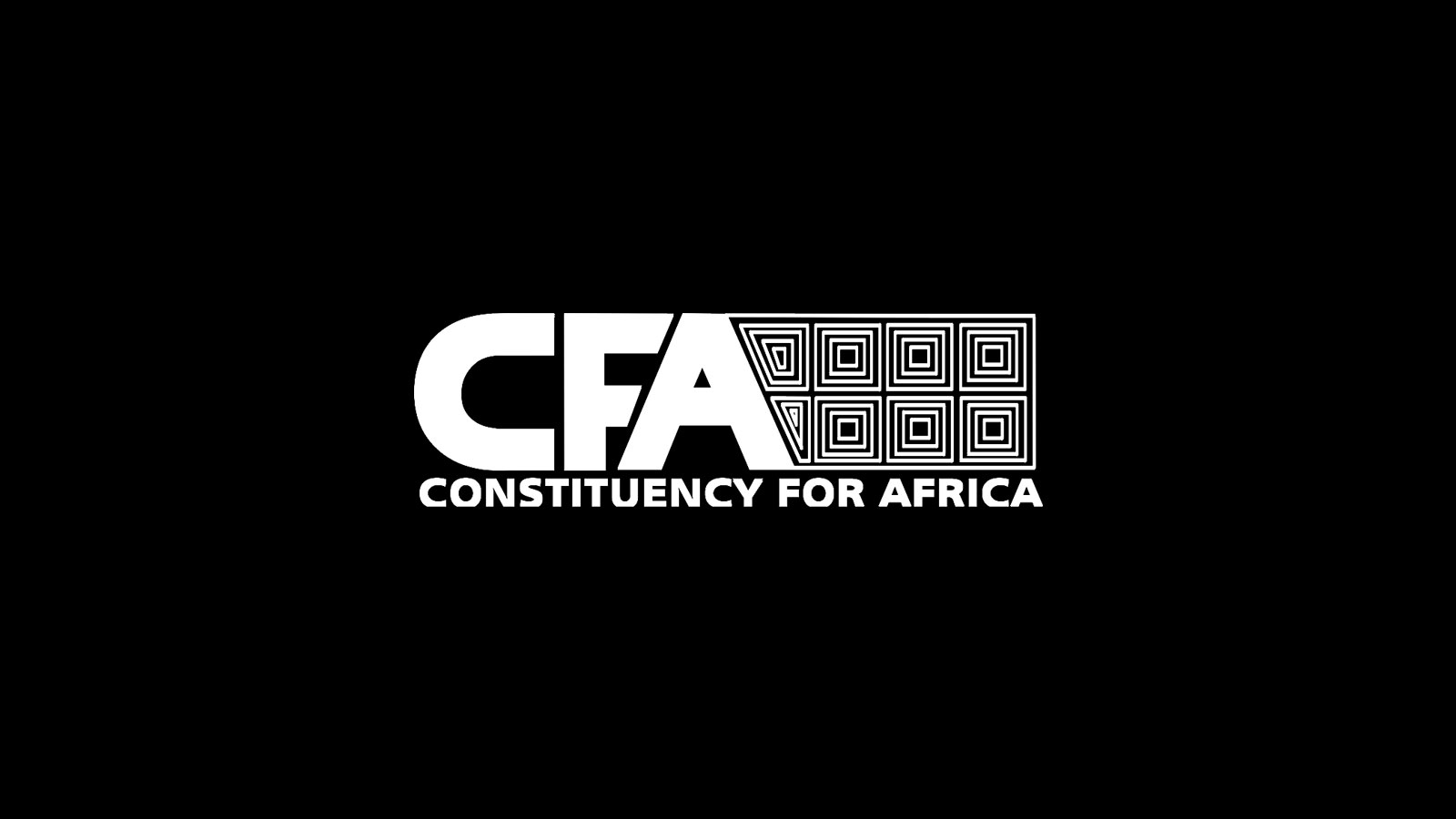
Constituency for Africa (CFA)
Position Paper on U.S. Policy Toward Africa
Executive Summary
President Biden has inherited a nation in dire need of economic stability. The worldwide Covid pandemic has intensified the challenging effects of stabilizing and promoting the growth of our economy. International economies that have slowed are increasingly depending on other nations’ financial strength and health worldwide. The Constituency for Africa (CFA) believes that the United States (U.S.) economy has necessitated a greater need for innovative Africa-centered policies to facilitate improved geopolitical, socio-economic, and trade and investment relations between the U.S. and Africa. Melvin Foote founded CFA in 1990 in Washington, DC. As part of CFA’s annual 2021 Ronald H. Brown (RHB) African Affairs Series, it brought together a group of African-American professionals, experts, and interested citizens from the fields of academia, government, diplomacy, military, private sector, nonprofit, media, and international affairs to participate in a virtual briefing by the Senior Coordinator and Special Advisor for Africa in the Office of Vice-President Kamala Harris, Ms. Jessica Davis-Ba on September 16, 2021. The primary purpose of the briefing was for Ms. Davis-Ba to share the Biden-Harris Administration’s plans for a U.S. policy towards Africa and obtain input from the group of African Diaspora leaders and stakeholders on U.S.- Africa policies.
Introduction
Although stabilizing the U.S. economy should rightfully take precedent, CFA believes several initiatives the Biden-Harris Administration could adopt would work to improve the U.S. and national economies of African countries. Accordingly, in a virtual meeting, Ms. Davis-Ba briefed CFA guests on U.S. policy towards Africa, answered their questions, and welcomed their opinions and suggestions. The discussion group would like the U.S. to take a proactive position and actions on U.S. policy towards Africa in the following areas: healthcare; trade and investment; international commerce markets, minority business partnerships; environment and climate; educational outreach that engages and fosters youth leadership in Africa and the African Diaspora; expand the inclusion of civil society organizations; immigration rights; promotion of geopolitics, “good governance” and security issues; and, increase the number of African-Americans in international fields such as the State Department, USAID, Peace Corps, higher educational institutions, and other U.S. agencies. In addition, the stakeholders provided opinions and input on proposed U.S. policies and suggestions to facilitate relationships, partnerships, and socio-economic ties between the U.S. and Africa, and the inclusion issues facing the Black Diaspora (i.e., Haiti, the Caribbean, and Afro-Latino communities).
We realize that the issues mentioned above are not monolithic but are an ongoing series of topics that have been discussed before with no significant resolutions. Nevertheless, the briefing and this CFA position paper are the basis for the discussions to continue in the spirit of cooperation to formulate solutions that will align with and benefit the domestic and international policies of the U.S. and Africa. This report provides recommendations for the Biden-Harris Administration to consider regarding future U.S. policy deliberationson Africa, which will hopefully be adopted. This report does not encompass all of the elements that are facing the U.S. and Africa. Still, it provides seasoned opinions and perspectives from Black professionals with the knowledge, experience, and interests toward future policies and issues affecting the U.S. and the approximately 1.3 billion people (and growing) in Africa. Our futures are intertwined in a global marketplace that is becoming more dependent upon one another. Therefore, this report would like the Biden-Harris Administration to concentrate and address socio-economic, geopolitical, environmental, cultural, healthcare, and related issues while continuing President Obama and President GW Bush administrations’ strong legacy in aiding and supporting Africa.
Key Recommendations
We expect U.S. policymakers and the business community to understand that the African Diaspora constitutes a significant asset for U.S. and African development. Therefore, we anticipate policy and program initiatives to tap into these rich and substantive platforms to develop short- and long-term U.S. policies toward Africa, which will continue to benefit and promote both U.S. and Africa through the following four Key Recommendation Sections:
I. Expand Trade, Investment, and Commerce capability for African-Americans, the African Diaspora, and Minority Business Partnerships;
II. Develop Health Care Infrastructure and Capacity, such as projects for pharmaceutical, including vaccine manufacturing and quality medical care in Africa;
III. Assist in creating more educational programs, investing in human development, and building social networks that involve the next generation of youth and leaders in Africa and the U.S.; and,
IV. Promote Democracy, Conflict Resolution, Civil Society, and Good Governance.















